Diet for people infected with HP bacteria
Along with following your doctor's prescribed treatment, diet plays an important role in preventing stomach ulcers caused by HP bacteria infection.
1. The importance of diet for people infected with HP bacteria
Prof. Dr. Dao Van Long - former head of the Department of Gastroenterology, Bach Mai Hospital said that the cause is the bacteria Helicobacter Pylori (), which is the leading cause of gastritis and complications of gastric and duodenal ulcers, and stomach cancer.
Professor Long said that this bacteria is transmitted through the mouth-to-mouth route, meaning that it is infected when eating and living with people infected with HP. In addition, the bacteria are transmitted through the environment due to poor food hygiene, environmental pollution, and contaminated water sources. Professor Long added that if there are symptoms of abdominal pain, belching, heartburn, epigastric pain, etc., treatment is needed.
Although medication is the main treatment for the infection, dietary adjustments can help prevent recurrence.
Controlling stomach ulcers involves avoiding foods that can aggravate or further irritate the stomach lining, such as salty and fatty foods, processed meats, alcoholic beverages, coffee, and spicy foods. At the same time, increase your choice of foods that promote the healing of stomach ulcers, such as foods containing probiotics and prebiotics.
While foods don't cause or treat ulcers, some can make your pain worse, while others can help you heal faster.
Therefore, what to eat and what to avoid is very important in helping the disease to heal quickly, preventing irritation of the gastric mucosa. Our diet should contain many substances with strong antibacterial activity against HP bacteria. Dietary interventions can reduce HP invasion and lead to a reduction in the incidence of gastritis, thereby potentially reducing the risk of developing gastric adenocarcinoma.
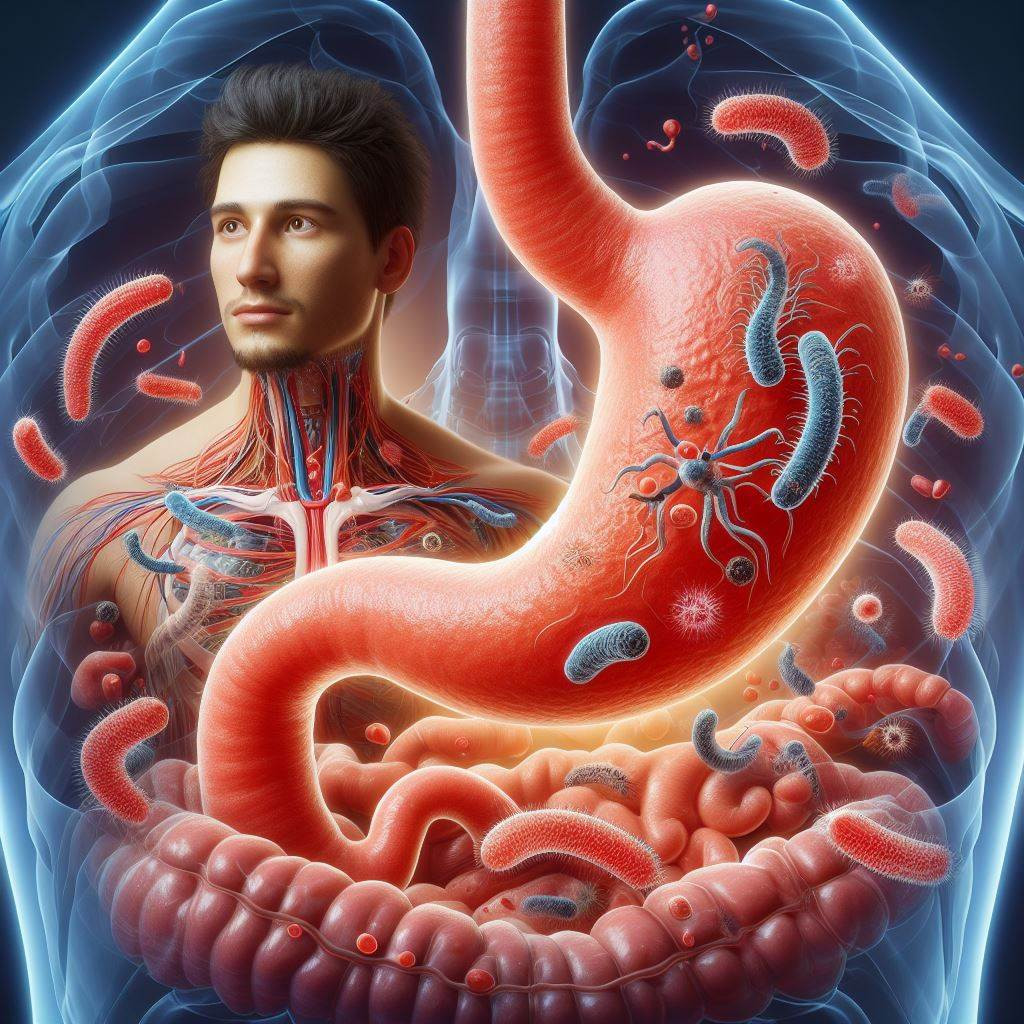
2. Some essential nutrients for people infected with HP bacteria
Some foods that are recommended to promote gut healing include probiotics such as fermented vegetables, yogurt, kombucha, salmon, green vegetables, bananas, bone broth, pineapple, kiwi, broccoli and green tea… For best results, consult your doctor or nutritionist to develop a suitable diet plan to help reduce HP infection.
Drink water from clean sources
You need to make sure you drink at least eight glasses of water every day. This is essential for your overall health and in case you have a peptic ulcer, it will help reduce irritation caused by the infection.
According to one study, water helps neutralize by increasing pH. It has the same effect as an antacid. People with medical conditions should consult a doctor or nutritionist about the ideal daily water intake for their condition.
In addition to knowing how much water you should drink, make sure the water source is clean and safe. Otherwise, it risks making the ulcer worse because HP bacteria can come from saliva, dirty utensils, contaminated water.
Foods rich in fiber
Apples, pears, oatmeal, and other high-fiber foods are good for ulcers. Fiber can reduce the amount of acid in the stomach, reducing bloating and pain. Research also shows that a high-fiber diet can help prevent ulcers.
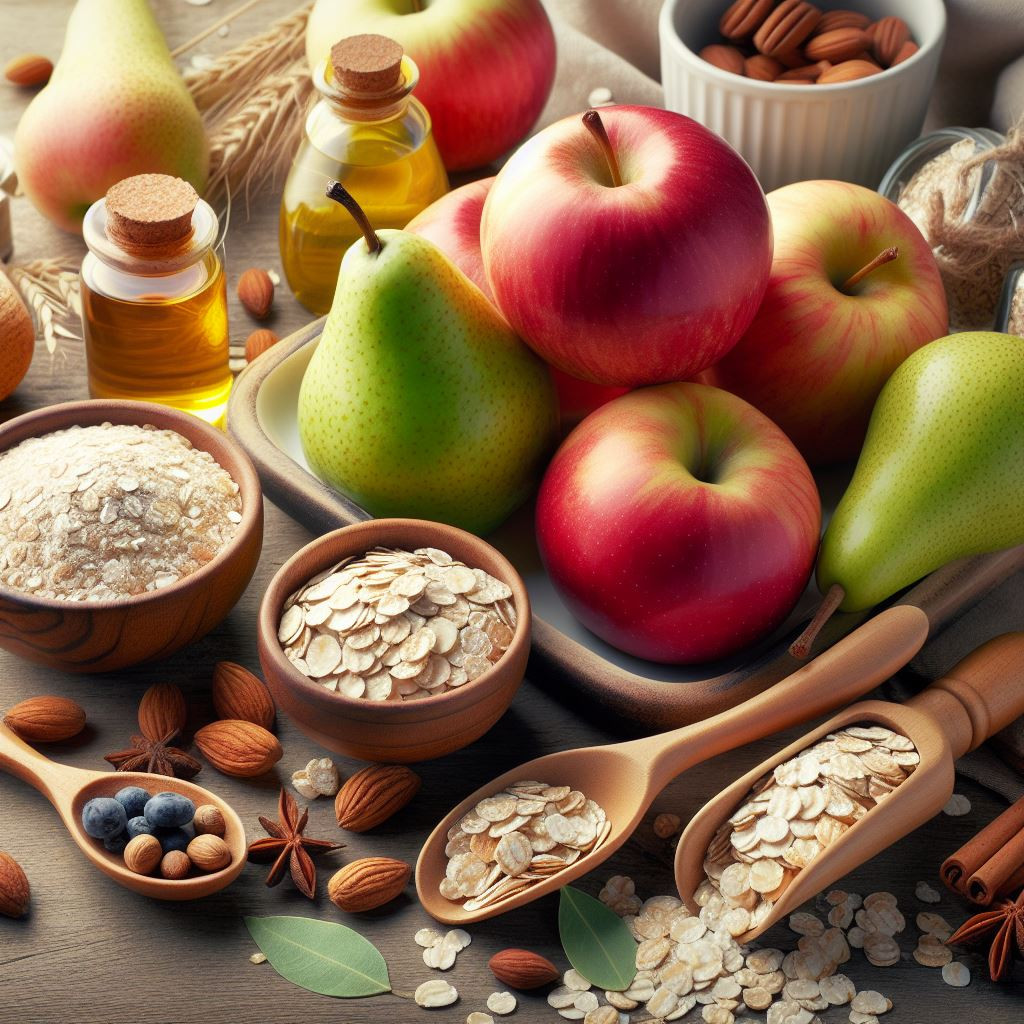
Prioritize foods rich in probiotics
Certain probiotic strains exhibit antibacterial activity due to their ability to modulate the host immune response, secrete antibacterial substances such as lactic acid, and disrupt bacterial adhesion mechanisms.
Prebiotics are specialized fibers that promote the growth of good bacteria in the gut, while probiotics refer to healthy bacteria and yeasts that live in the body. They ensure proper digestion and improve immunity against infections.
In addition to antibiotics, foods rich in probiotics can also help eliminate H. pylori bacteria. These good bacteria balance the microbiome in the gut, eliminate infections, and reduce the inflammatory effects and damage to the stomach lining. They can help heal ulcers by fighting H. pylori infection or help treatments work better.
To improve the bacterial environment in your gut and promote healing in the stomach lining, consider adding the following foods to your diet:
Yogurt Kombucha Kefir Kimchi Sauerkraut Tempeh Miso
These foods contain probiotics that target HP bacteria and help improve the healing of stomach ulcers, especially Lactobacillus and Bifidobacteria.
People infected with HP bacteria should choose foods and drinks that do not make ulcers worse but also promote wound healing and recovery, such as green tea and cabbage juice.
Green tea
This beverage has properties and antioxidants that help reduce the symptoms of gastritis, stomach ulcers. It also has the ability to help kill Helicobacter bacteria. This, along with other health benefits, makes green tea one of the healthiest beverages.
Cabbage juice
In traditional medicine, sauerkraut juice has been considered an effective remedy for stomach ulcers for centuries. Cruciferous vegetables (cauliflower, swede, cabbage, rapeseed, turnips) contain substances called isothiocyanates. The substances mentioned above exhibit anti-cancer activity, such as: induction of apoptosis, inhibition of cell proliferation and modulation of liver cells involved in metabolizing carcinogens.
In a prospective trial involving approximately 18,000 Chinese patients, the association between the risk of gastric malignancy and gastric cancer and urinary isothiocyanate metabolite concentrations was evaluated. During a 16-year observation period involving a subgroup of patients with high urinary isothiocyanate metabolite concentrations, the risk of gastric cancer was lower. The authors believe that the protective effect of isothiocyanates may be due to their bactericidal activity against H. pylori.
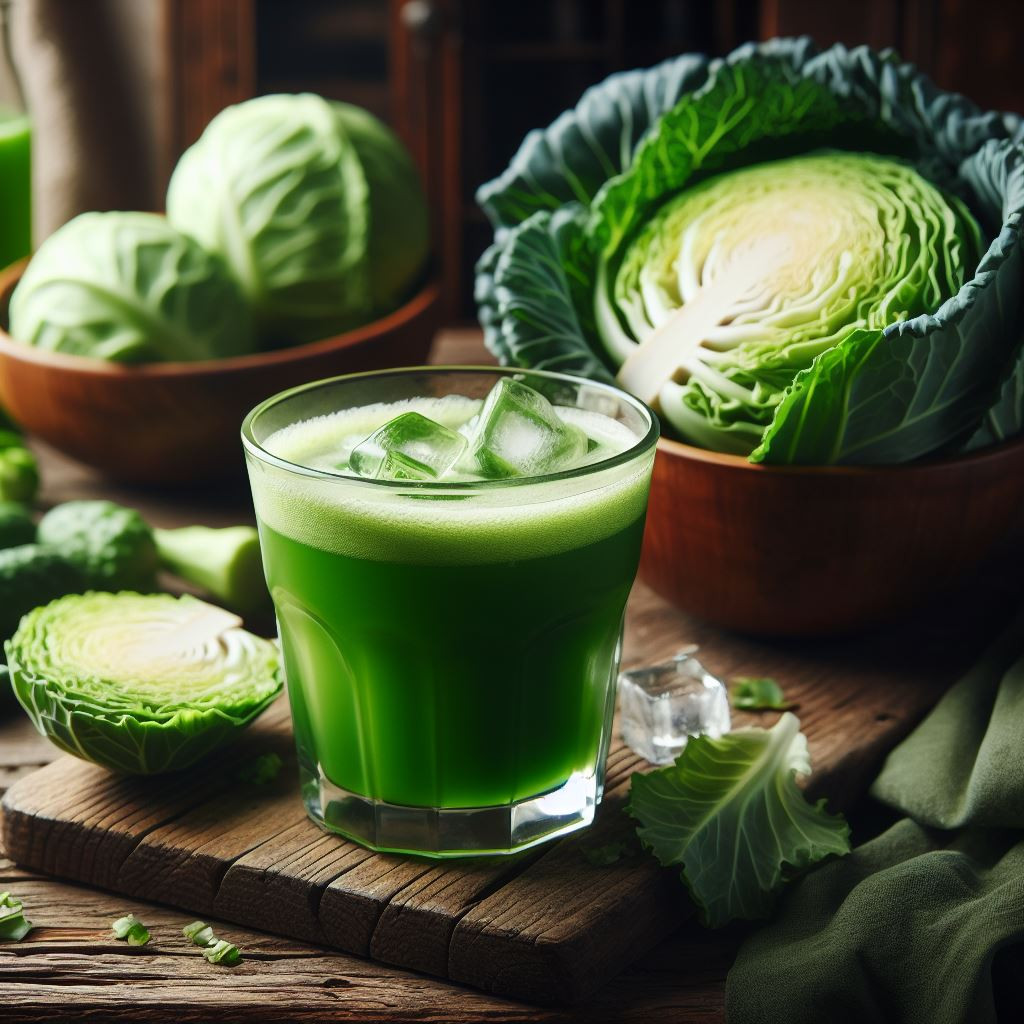
Oils and fatty acids
In 1994, Thompson et al. demonstrated that polyunsaturated fatty acids, omega-3, omega-6 inhibit the growth of HP bacteria in vitro. Furthermore, plant oils containing polyphenols have bacteriostatic activity against HP bacteria. Under laboratory conditions, the following food products have bacteriostatic activity against Hp: blackcurrant seed oil, fish oil, carrot seed or grapefruit seed oil.
In several trials, the bacteriostatic activity of olive oil and polyunsaturated fatty acid intake have been shown to reduce the incidence of atrophic gastritis.
Eat lots of broccoli and Brussels sprouts
Broccoli, Brussels sprouts, and other cruciferous vegetables are excellent sources of prebiotics, which promote healthy bacteria. This in turn helps fight infections caused by harmful or disease-causing bacteria like H. pylori.
Additionally, one study confirmed that broccoli sprouts can help eliminate Helicobacter bacteria, showing that they have antibacterial properties that counteract the agent that causes stomach ulcers.
Sweet potato
Sweet potatoes are high in vitamin A, and there is evidence that this nutrient helps shrink stomach ulcers and may also play a role in preventing them. Other foods high in vitamin A include spinach, carrots, cantaloupe, beef liver, etc.
Honey
The antibacterial activity of honey is due to its high osmolarity, pH, and low hydrogen peroxide content. Some honeys, such as oak honey or manuka honey, have strong bacteriostatic activity in vitro against H. pylori and inhibit urease activity. In a study evaluating the dietary habits of 150 patients with dyspepsia, consuming honey at least once a week was associated with a significantly lower rate of H. pylori infection.
Which vitamins are good for people infected with HP bacteria?
Vitamin C:Or ascorbic acid is the main vitamin that can help treat stomach ulcers. According to a 2018 review, H. pylori infection is associated with vitamin C deficiency. On top of that, it also helps boost the immune system by promoting the movement of white blood cells to the site of infection.
Red bell peppers are rich in vitamin C, which plays an important role in wound healing. People who don't get enough of it are also more likely to get ulcers. This nutrient is also found in citrus fruits, strawberries, kiwis, and broccoli.
Vitamin B12:In addition to vitamin C, people with stomach ulcers should also increase their intake of natural sources of vitamin B12. Vitamin B12 deficiency can be caused by infections and can easily lead to the development of stomach ulcers.
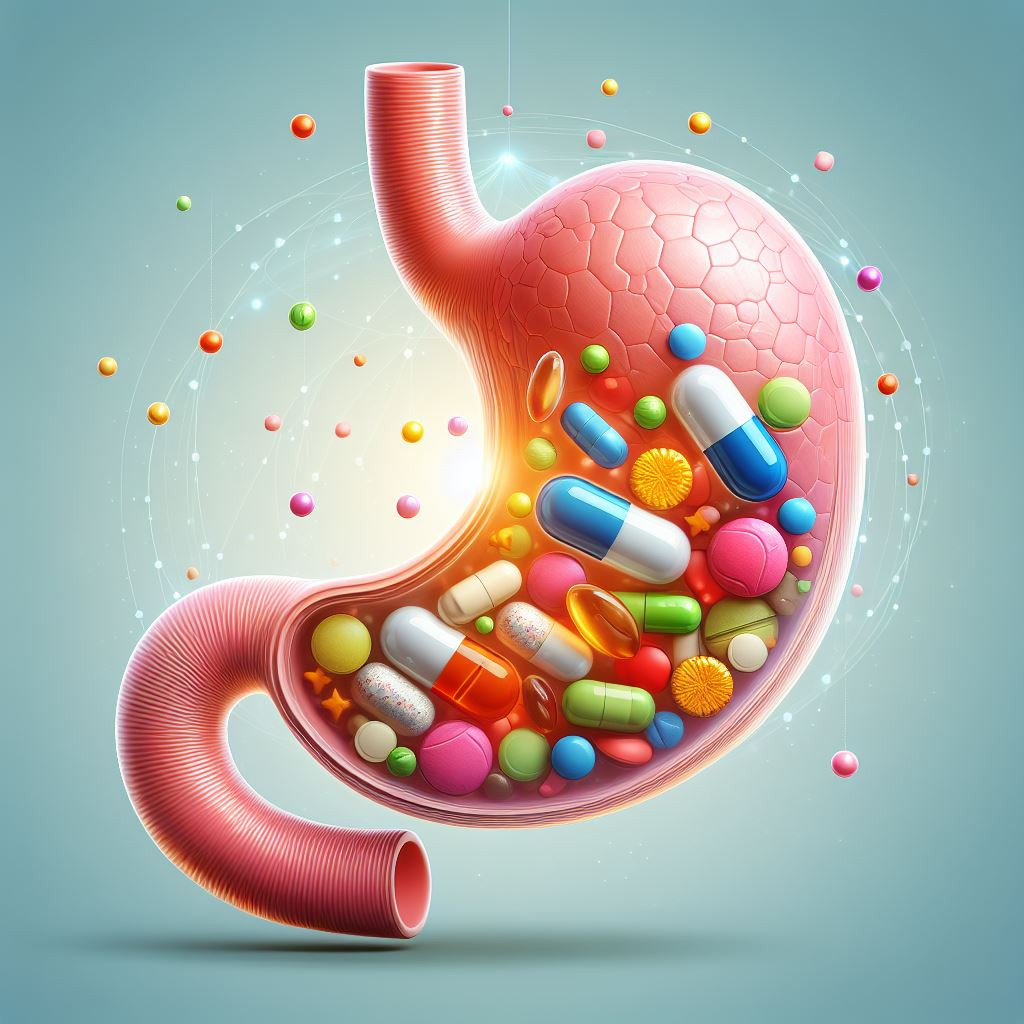
3. Some foods to avoid when infected with HP bacteria
Avoid salty and fatty foods
A diet rich in sodium and fat not only increases the risk of peptic ulcers, but also makes the condition worse when an infection occurs. For example, a high-salt diet activates genes that make H. pylori bacteria more active in the stomach, causing inflammation and spreading stomach lesions.
If the diet is high in fat, especially from unhealthy sources, it is more likely to change the environment in the stomach, making it an ideal place for bacteria to grow, especially Helicobacter.
Avoid the following foods:
Fried foods Frozen foods Whole milk products Processed meats Salt Canned foods Limit alcohol and coffee Limit milk intake to reduce stomach acid secretion.
Fatty foods take longer to digest, which can lead to stomach pain and bloating. If they make your stomach feel worse, stop eating these foods.
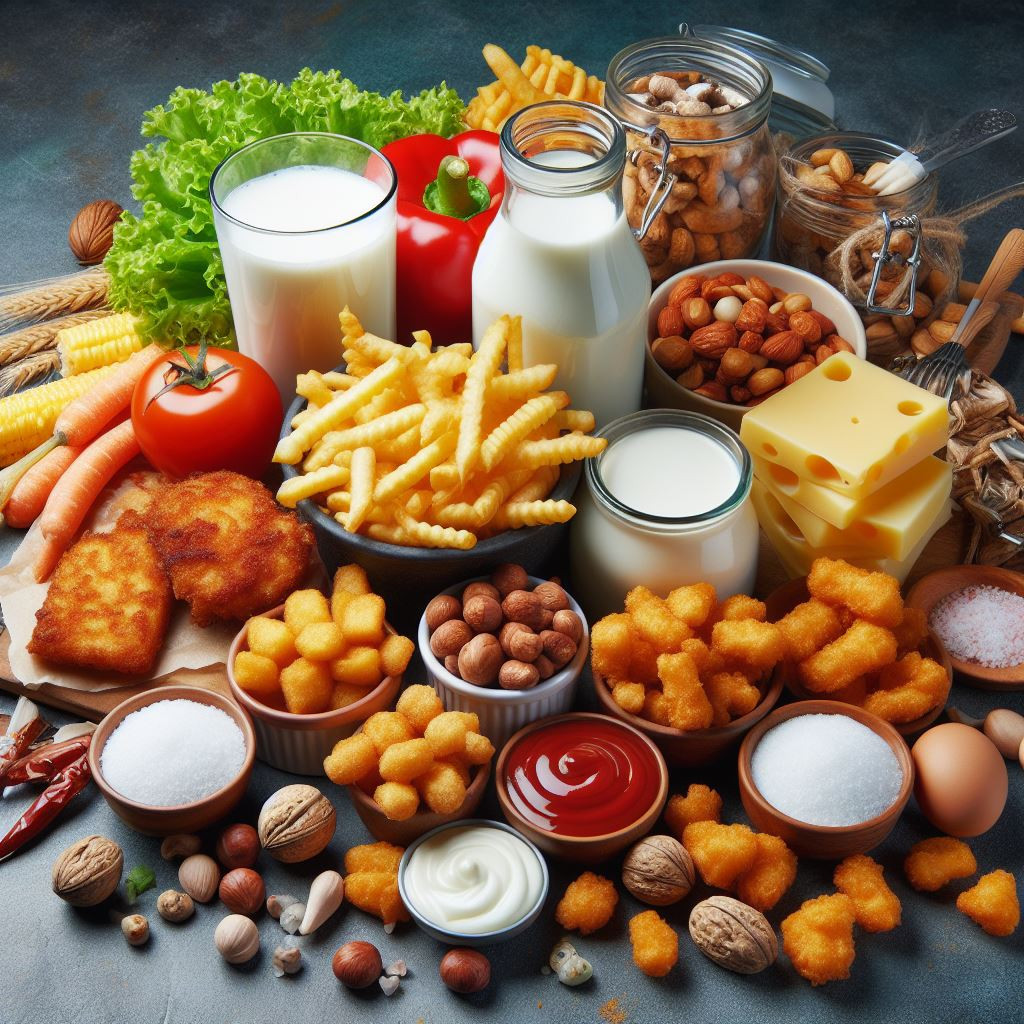
Avoid alcohol and caffeine
Regularly drinking large amounts of alcohol irritates the healthy lining of your stomach, not to mention causing ulcers. It causes inflammation of the tissues and makes the irritation worse. If you are prone to ulcers or have an existing ulcer, it is best to limit your alcohol intake or avoid it altogether. Research has shown that alcohol irritates and can even damage the digestive tract, making ulcers worse.
On the other hand, coffee promotes stomach acid production, so coffee and other caffeinated drinks can make things worse if you already have a stomach ulcer, gastritis, or gastroesophageal reflux disease (GERD).


